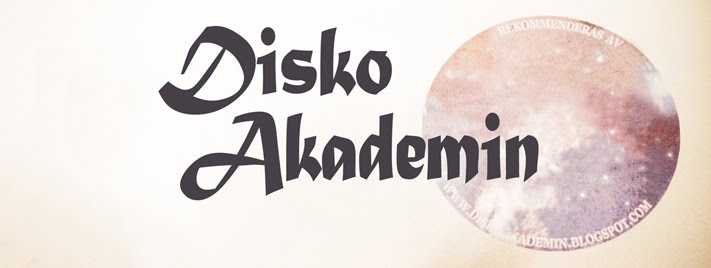The new documentary (or video essay if you will) by Jamie Kastner on the (secret) history of disco as the title indicates, is making its way around the cinema circuit in fast pace. The position of the film (stated in the
press release) is that disco has been "gravely misunderstood" and that "
revisionist historians now argue the era was in fact an important time of protest: liberating gays, blacks and women". They key historian referred to is Alice Echols, author of
Hot Stuff: Disco and the Remaking of American Culture. Peter Shapiro, author of
Turn The Beat Around: The Secret History Of Disco, is also featured and interviewed in the film. And while most of the films narrative takes its facts straight from these in my opinion very reliable sources, Kastners ambitions with the film as a whole obscures these facts in favour of a quite complex - but in no way uninteresting - stance regarding both the story and the craft of documentary-film making. By claiming that the film is a
"comical investigation" and a
"satirical exploration" Kastner relieves himself of taking any kind of position, and instead plays a kind of critical bystander, leaving almost everything up to the viewer. Yet the main arguments and sentiments of Echols & Shapiros research are without hesitation used as the backbone to promote the film, which Kastner explains to
CBCNews:
“rather than challenge these theories in any kind of direct or head-on way, I decided to take a more playful, roundabout, ironic approach that was, in tone, agreeing with them 150 per cent”. This could explain the senseless choice of topics and interviewees that make up the rest of the film: why, for instance, Nicky Siano is the only DJ featured (no mention whatsoever of Mancuso, Levan or Grasso).
This satirical approach to Echols & Shapiro also makes for some rather tasteless paradoxes, as in the feature about Kool & The Gang for instance. We see Robert Bell shrug his shoulders while explaining the shift in sound from
Jungle Boogie to
Ladies Night, a scene purposefully pointing out the demise of musical quality as the record companys steered their artists into disco. In an
interview by Bill Brewster for DJHistory, Echols however points out that one of her strongest points was to challenge the assumption that disco and rock (as well as other "serious" genres like funk & soul) were antagonistic. Many artists (like David Bowie, Rolling Stones, Jeff Beck, Luther Vandross, Sly Stone) had no problem breaking these invisible boundaries (which were usually set in the minds of journalists). Kool & The Gang is an exception not because of the overwhelming force of the disco-crazed industry, but simply because they got bad and trusted their company too much.
Another example is that of
Saturday Night Fever, the 1979 movie that exposed the world to disco in an unprecedented scale. The movie is of course mentioned in Kastners film, but not the
secret history of it as described by Shapiro. The script for
Saturday Night Fever was in fact based on an article written by british journalist
Nik Cohn and published 1976 in New York Magazine. However, the whole story was a hoax since Kohn knew nothing about disco and had just moved to New York. He simply took an old article of his about the Northern Soul-scene of England and changed some details to fit the scenery of 1976 New York. The movie thus introduced disco to the world as a white, straight & sexist cultural phenomenon with Kohn as its alibi, making way for the following perversion of disco culture with Studio 54 as its beacon of light.
For someone already in the know, this is a therefore a quite meager and unfocused tale of the history of disco, but none the less it's a story well worth telling, as most people would still fully disregard disco as a meaningless fad. The Guardian
review deems Kastners proposals "an unexpected school of thought" and warns viewers that the "thesis of revolution (...) be treated with the scepticism it initially deserves". For
CBCNews Kastners film "offers a stunning new revelation", which is also their ironic way of dismissing Kastners methods of mixing fiction with fact as unprofessional for documentary-film makers in a feeble attempt to protect the average viewer that they deem too stupid to understand the difference.
The Star even calls Echols an "egghead" for her feminist interpretation of Donna Summers
Love To Love You Baby. Way to go guys. In a media-consensus like that, I guess we're supposed to be lucky for films like that of Kastners.
Simon Eliasson, 2012.






